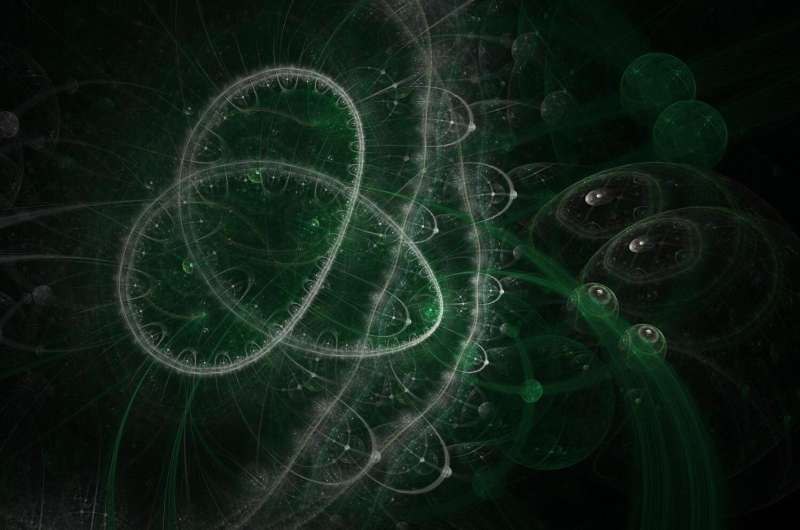Credit: CC0 Public Domain
Bartosz Regula from the RIKEN Center for Quantum Computing and Ludovico Lami from the University of Amsterdam have shown, through probabilistic calculations, that there is indeed, as had been hypothesized, a rule of entropy for the phenomenon of quantum entanglement.
This finding could help drive a better understanding of quantum entanglement, which is a key resource that underlies much of the power of future quantum computers. Little is currently understood about the optimal ways to make effective use of it, despite it being the focus of research in quantum information science for decades.
The second law of thermodynamics, which says that a system can never move to a state with lower entropy, or order, is one of the most fundamental laws of nature, and lies at the very heart of physics. It is what creates the "arrow of time," and tells us the remarkable fact that the dynamics of general physical systems, even extremely complex ones such as gases or black holes, are encapsulated by a single function, its entropy.
There is a complication, however. The principle of entropy is known to apply to all classical systems, but today we are increasingly exploring the quantum world.
We are now going through a quantum revolution, and it becomes crucially important to understand how we can extract and transform the expensive and fragile quantum resources. In particular, quantum entanglement, which allows for significant advantages in communication, computation, and cryptography, is crucial, but due to its extremely complex structure, efficiently manipulating it and even understanding its basic properties is typically much more challenging than in the case of thermodynamics.
The difficulty lies in the fact that such a "second law" for quantum entanglement would require us to show that entanglement transformations can be made reversible, just like work and heat can be interconverted in thermodynamics.
It is known that reversibility of entanglement is much more difficult to ensure than the reversibility of thermodynamic transformations, and all previous attempts at establishing any form of a reversible theory of entanglement have failed. It was even suspected that entanglement might actually be irreversible, making the quest an impossible one.
In their new work, published in Nature Communications, the authors solve this long-standing conjecture by using probabilistic entanglement transformations, which are only guaranteed to be successful some of the time, but which, in return, provide an increased power in converting quantum systems.
Under such processes, the authors show that it is indeed possible to establish a reversible framework for entanglement manipulation, thus identifying a setting in which a unique entropy of entanglement emerges and all entanglement transformations are governed by a single quantity. The methods they used could be applied more broadly, showing similar reversibility properties also for more general quantum resources.
According to Regula, "Our findings mark significant progress in understanding the basic properties of entanglement, revealing fundamental connections between entanglement and thermodynamics, and crucially, providing a major simplification in the understanding of entanglement conversion processes.
"This not only has immediate and direct applications in the foundations of quantum theory, but it will also help with understanding the ultimate limitations on our ability to efficiently manipulate entanglement in practice."
Looking toward the future, he continues, "Our work serves as the very first evidence that reversibility is an achievable phenomenon in entanglement theory. However, even stronger forms of reversibility have been conjectured, and there is hope that entanglement can be made reversible even under weaker assumptions than we have made in our work—notably, without having to rely on probabilistic transformations.
"The issue is that answering these questions appears significantly more difficult, requiring the solution of mathematical and information-theoretic problems that have evaded all attempts at solving them thus far. Understanding the precise requirements for reversibility to hold thus remains a fascinating open problem."
More information: Bartosz Regula et al, Reversibility of quantum resources through probabilistic protocols, Nature Communications (2024). DOI: 10.1038/s41467-024-47243-2
Journal information: Nature Communications
Provided by RIKEN
























